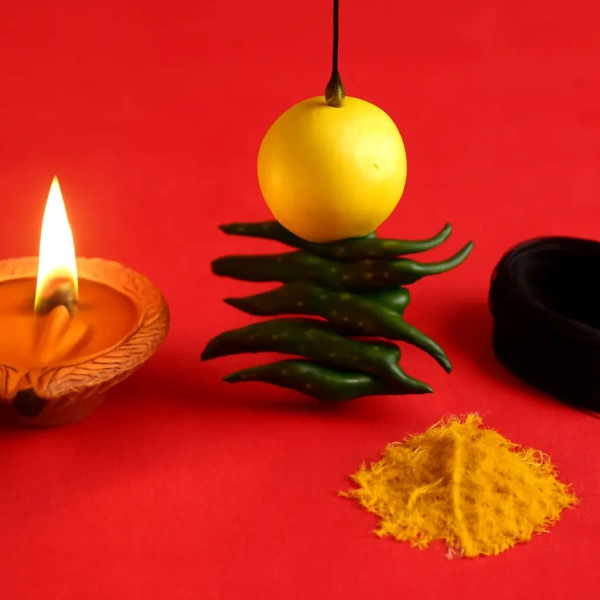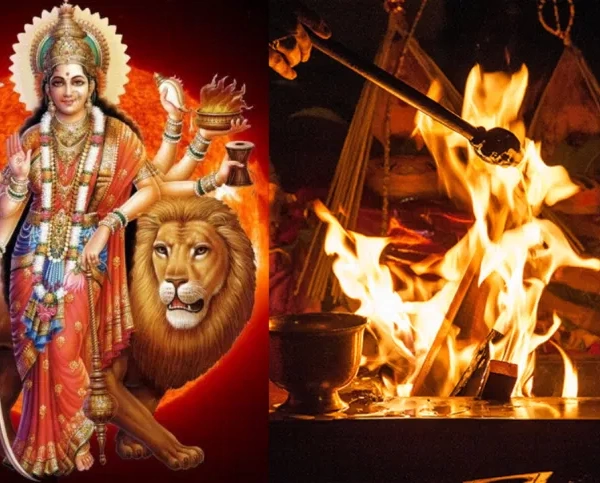Bagalamukhi Yagya is one of the most potent rituals in Hindu Tantra, performed to invoke Maa Bagalamukhi, the “Crusher of Evil” and destroyer of enemies’ ill intentions. If you’re curious about the Bagalamukhi Yagya procedure & materials list, it’s important to know that she is known as Pitambara Devi, and she holds immense power to paralyze harmful forces, silence malicious speech, and protect devotees from visible and invisible threats.
If you’re planning to perform or sponsor this Yagya, understanding the step-by-step procedure and materials required will help you prepare for maximum benefits.
Also read Bagalamukhi Yagya – Significance, Benefits & Who Should Perform It
Also read Famous Bagalamukhi Temples & Online Puja Booking Options (with Costs)
Bagalamukhi Yagya – Step-by-Step Procedure
A full Bagalamukhi Anusthan (extended ritual) involves three key stages: Mantra Jap, Havan (fire ceremony), and Tarpan/Marjan (water offerings).
1. Sankalp (Resolution)
- The priest or devotee takes a vow (sankalp) stating their name, gotra, and the purpose of the Yagya (e.g., legal victory, protection from black magic, business success).
- Offer a yellow flower, rice, and water to the deity while making the vow.
2. Mantra Jap (Recitation)
- Main Mantra: “Om Hleem Bagalamukhi Sarva Dushtanam Vacham Mukham Padam Stambhaya Jivham Keelaya Buddhim Vinashaya Hleem Om Swaha”
- Standard count: 125,000 repetitions for a complete purashcharana, spread over 5–11 days.
- Requirements:
- Turmeric (haldi) mala for counting.
- Yellow attire and yellow asana (seat).
- Sattvic vegetarian food during the sadhana period (often yellow sweets like besan ladoo as offerings).
3. Havan (Fire Ceremony)
- Performed after completing the mantra count.
- Offerings:
- Ghee (clarified butter)
- Yellow mustard seeds
- Turmeric powder & roots
- Black sesame seeds
- Yellow flowers (marigold)
- Sacred havan samagri (wood, herbs, resins)
- Coconut and betel nuts (symbolizing obstacles to be destroyed)
- Offer 10% of the total japa count into the fire (e.g., 12,500 offerings for 125,000 japa).
- Each offering is made with the mantra and the word “Swaha.”
4. Tarpan & Marjan
- Tarpan: Water libations offered with 1,250 mantra recitations.
- Marjan: Sprinkling sanctified water on participants for purification.
- Water is mixed with turmeric, sandalwood, and flowers.
5. Brahmin Feeding & Dakshina
- Feed 11 Brahmins or 11 Kanyas (young girls) as representatives of divine blessings.
- Offer dakshina (charity) in Maa Bagalamukhi’s name.
6. Aarti & Conclusion
- Perform aarti to Maa Bagalamukhi with a ghee lamp.
- Offer a yellow chunri to the goddess and seek blessings for your purpose.
Materials Required for Bagalamukhi Yagya
| Item | Purpose |
|---|---|
| Turmeric mala | Counting mantras |
| Yellow clothes & asana | Purity and connection to goddess |
| Ghee | Main havan offering |
| Yellow mustard seeds | Signature offering to Maa Bagalamukhi |
| Turmeric powder & roots | Symbol of goddess’s energy |
| Black sesame seeds | Removing negativity |
| Yellow flowers (marigold) | Decoration & offering |
| Sacred havan samagri | Mixture of woods, herbs, resins |
| Coconut & betel nuts | Symbolizing destruction of obstacles |
| Bagalamukhi yantra | Installed for energy focus |
| Incense sticks & camphor | Purification |
| Yellow chunri | Offering to goddess |
| Brahmin feast ingredients | Concluding ritual charity |
Where to Perform Bagalamukhi Yagya
- Temples:
- Nalkheda, Madhya Pradesh
- Pitambara Peeth, Datia, MP
- Kangra, Himachal Pradesh
- Online Options: Book through temple trusts or reputable puja platforms for remote participation.
- Home Puja: Requires an initiated priest for proper tantric procedures.
Cost of Bagalamukhi Yagya
- Basic temple puja: ₹2,100 – ₹5,100
- Elaborate multi-day anusthan: ₹11,000 – ₹75,000+
- Online services may include live streaming, prasad delivery, and personalized sankalp.
Conclusion
Bagalamukhi Yagya is a high-energy ritual that demands precision, devotion, and the right materials. Whether you perform it in a renowned temple or sponsor it online, following the complete procedure ensures Maa Bagalamukhi’s blessings for victory, protection, and prosperity.



1 Comment